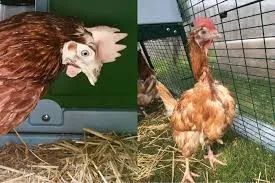Build Your Own Quail Plucker for Efficient Processing at Home
Dec . 10, 2024 04:13 Back to list
Build Your Own Quail Plucker for Efficient Processing at Home
Homemade Quail Plucker A Step-by-Step Guide
Quail hunting has become an increasingly popular pastime for many outdoor enthusiasts. These small game birds offer a unique challenge and delectable flavor that is hard to match. However, one significant challenge after the hunt is the preparation of the birds for cooking. Feather removal can be tedious and time-consuming, especially if you are processing multiple birds. This is where a homemade quail plucker can save you time and effort. In this article, we will explore how to build a simple yet effective quail plucker, complete with a list of materials, tools, and a step-by-step guide.
Why Build Your Own Quail Plucker?
Building your own quail plucker offers several advantages. First and foremost, it saves you money. Commercial pluckers can be expensive, and if you hunt infrequently, investing in one may not be worth it. A homemade version allows you to customize the design according to your specific needs.
Additionally, a DIY plucker is simpler to transport and store than commercial models. It can be designed to break down easily or to fit in a compact space, making it ideal for hunters who may not have a permanent setup.
Materials Needed
To build your own quail plucker, you will need the following materials
1. Wooden Frame Pressure-treated lumber (2x4s) for the base and sides. 2. Drum A large plastic or metal barrel (55-gallon works well). 3. Plucking Fingers Rubber or silicone fingers (available from various suppliers). 4. Motor An electric motor with variable speed (around 1/4 to 1/2 horsepower). 5. Pulleys and Belts To transfer motor power to the drum. 6. On/Off Switch To control the motor. 7. Wiring For connecting the motor and the switch. 8. Screws and Bolts For assembling the frame and securing components. 9. Optional A water spray system to help loosen feathers.
Tools Required
Before you begin, gather these tools
- Electric drill - Circular saw (or hand saw) - Wrench set - Screwdriver - Measuring tape - Safety goggles - Work gloves
Step-by-Step Guide
Step 1 Construct the Frame
Start by cutting the pressure-treated lumber into lengths suitable for the frame. You will need four vertical supports and two horizontal pieces to create a rectangle at the base. Ensure the frame is robust enough to hold the weight of the drum and withstand vibrations during operation.
homemade quail plucker

Step 2 Attach the Drum
Next, secure the barrel to the top of the frame. The drum should be able to rotate freely but tightly enough to minimize wobbling. Use bolts to secure it in place.
Step 3 Install the Motor
Mount the electric motor on the side of the frame so that it is aligned with the drive system. Use pulleys and belts to connect the motor to the drum. This will enable the drum to spin when the motor is turned on. Make sure the motor is securely fastened to prevent movement during operation.
Step 4 Fix the Plucking Fingers
Attach the rubber or silicone fingers inside the drum. They should be spaced evenly, covering the interior surface. Use screws or adhesive to secure them in place. The fingers will be responsible for grabbing and pulling the feathers out as the drum spins.
Step 5 Set Up the Electrical System
Wire the motor to an on/off switch, ensuring all connections are secure and insulated. If you're adding a water spray system, you can include a small hose with holes inside the drum to help with feather removal.
Step 6 Testing the Plucker
Before using your homemade quail plucker on an actual bird, run a few test spins with the drum to ensure everything is working correctly. Check for any wobbling or unusual noise. Adjust the motor speed if necessary to find the optimal setting for feather removal.
Step 7 Start Plucking
Once you’re satisfied with the setup, it’s time to put your plucker to the test. Place a quail inside the drum, turn on the motor, and let it run for about 15-30 seconds. The feathers should come off easily, significantly reducing your processing time.
Conclusion
Building a homemade quail plucker may seem like a daunting task, but with the right materials and tools, it can be an enjoyable project that enhances your hunting experience. By investing a little time and effort, you’ll create a machine that saves you valuable time in the field, allowing you to focus more on enjoying the fruits of your labor. Happy hunting and plucking!
-
Hot Sale 24 & 18 Door Rabbit Cages - Premium Breeding Solutions
NewsJul.25,2025
-
Automatic Feeding Line System Pan Feeder Nipple Drinker - Anping County Yize Metal Products Co., Ltd.
NewsJul.21,2025
-
Automatic Feeding Line System Pan Feeder Nipple Drinker - Anping County Yize Metal Products Co., Ltd.
NewsJul.21,2025
-
Automatic Feeding Line System - Anping Yize | Precision & Nipple
NewsJul.21,2025
-
Automatic Feeding Line System - Anping Yize | Precision & Nipple
NewsJul.21,2025
-
Automatic Feeding Line System-Anping County Yize Metal Products Co., Ltd.|Efficient Feed Distribution&Customized Animal Farming Solutions
NewsJul.21,2025






